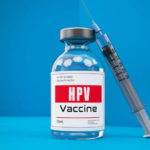
Over 400,000 adolescent girls in the Ashanti region are set to be vaccinated against cervical cancer as the Ghana Health Service rolls out a nationwide Human Papillomavirus (HPV) vaccination campaign.
The vaccination will take place between October 7 and 11, 2025, as the GHS targets 2.4 million adolescent girls against the Human Papillomavirus (HPV), the leading cause of cervical cancer.
The five-day drive marks the full national rollout of the HPV vaccination programme, following two successful pilot phases conducted between 2013 and 2018.
The GHS is urging parents, community leaders, and all stakeholders to support the initiative, which public health experts describe as a critical move to protect the future health of Ghanaian women.
The Scope of the National Campaign
The campaign is aimed at reaching girls within a specific age range (typically 9 to 14 years, though the specific range for the current rollout was not detailed in the report) to ensure they receive the protective vaccine before potential exposure to the virus.
- National Target: The GHS aims to vaccinate 2.4 million girls across the country, significantly boosting Ghana’s efforts toward the World Health Organization’s (WHO) global strategy to eliminate cervical cancer.
- Ashanti Region Focus: The Ashanti Region, being one of Ghana’s most populous regions, is tasked with vaccinating approximately 400,000 adolescent girls, making it a key focus area for the successful execution of the national strategy.
- Duration: The intensive phase of the campaign is scheduled to run for five days, from Tuesday, October 7, to Saturday, October 11, 2025.
The national rollout comes after successful initial programs proved the efficacy and logistics of the vaccination strategy in Ghana. The two pilot programs, which ran intermittently from 2013 through 2018, provided the data necessary to scale the operation nationally.
Cervical Cancer: A Preventable Public Health Crisis
Cervical cancer is a major public health concern in Ghana and Africa, with the country facing some of the highest incidence and mortality rates globally. The WHO estimates that cervical cancer is the second most frequent cancer among women in Ghana.
Dr. Fred Adomako-Boateng, the Ashanti Regional Director of Health Services, emphasized the preventive nature of the campaign, stating that the HPV vaccination is the correct strategic intervention to secure future generations.
“This is the right move to protect the next generation of women against cervical cancer,” Dr. Adomako-Boateng asserted. “We are not just administering a shot; we are investing in a future where our daughters and granddaughters are free from the threat of this preventable disease. I strongly urge all stakeholders—parents, educators, religious leaders—to support this crucial campaign.”
According to global health figures, HPV causes almost all cases (over 99%) of cervical cancer, making the vaccination the most powerful tool for primary prevention.
The success of this campaign is vital for Ghana to align with the WHO’s “90-70-90” targets for cervical cancer elimination: 90% of girls fully vaccinated by age 15; 70% of women screened; and 90% of women with pre-cancers treated. By reaching 2.4 million girls, Ghana moves significantly closer to achieving the vaccination goal.
The GHS has assured the public that the vaccine is safe, effective, and has been extensively pre-qualified by the WHO. The vaccination teams are expected to reach the target population primarily through schools and designated community health centres during the five-day period.



